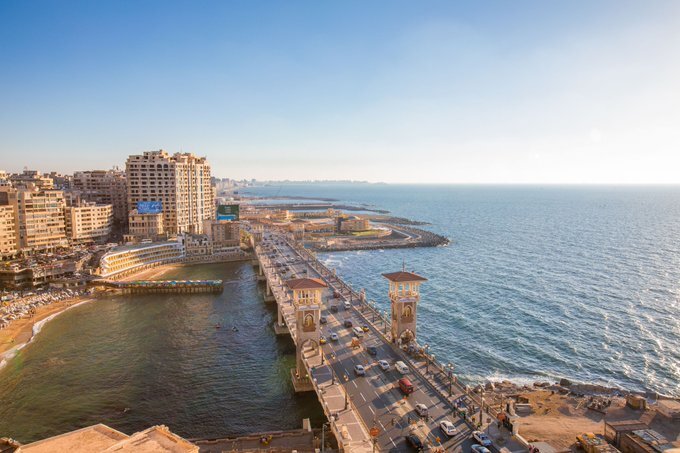
Water Conservation: 7 Simple Ways to Save Water at Home and in Your Business
Water is one of our most precious resources, yet it is often wasted without thought. ...

The United Nations Environment Program (UNEP) will publish in late May a feasibility study on a district cooling system called the Seawater Air-conditioning system for Egypt’s New Alamein City.
Under the Seawater Air-conditioning system, coldwater taken from deep in the Mediterranean Sea is pumped into a cooling station and passed through a heat exchanger, where it absorbs heat from buildings. Cool air generated from the cold water is used to maintain comfortable temperatures in the buildings, while the warm water is sent back into the sea.
Initially, the project would consist of a single district cooling plant to be built over two years, with 30,000 Tones of Refrigeration (TR) capacity, sufficient to cool entire neighborhoods. The Seawater Air-conditioning system is estimated to cost $117 million in building production facilities and a further $20-25 million for the distribution network.
With this cooling system, the city would reduce refrigerants emissions by 99 percent and carbon dioxide emissions by 40 percent. This is particularly important because these reductions will help Egypt meet its requirements to phase-down hydrofluorocarbon emissions established by the Kigali Amendment to the Montreal Protocol on Substances that Deplete the Ozone Layer.
This landmark multilateral environmental agreement regulates the production and consumption of nearly 100 man-made chemicals called ozone-depleting substances.
Since many ozone-depleting substances also contribute to global warming, the Montreal Protocol and the Kigali Amendment – which provides for phasing down harmful greenhouse gases used in air conditioning, refrigeration and foam insulation – is expected to avoid up to 0.5°C of global warming by the end of this century. This represents a major step in the commitment to limit global warming to below 2°C under the Paris Agreement.
The feasibility study to assess the potential for district cooling in New Alamein City will be published in late May 2022.
It is expected to analyze whether it would be financially and technically viable to build a district cooling solution that would reduce or avoid using hydrofluorocarbons.
The study was initiated through the Multilateral Fund of the Montreal Protocol, and UNEP supported the development of an institutional framework. The efforts are being elevated through UNEP District Energy in Cities Initiative, which is taking the study to the level of execution.
UNEP’s support for the study is part of a larger effort to reduce the greenhouse gas emissions that come with cooling.
In Egypt, UNEP’s OzonAction team is also supporting the development, update, enactment and enforcement of specialized nation-wide codes for ACs, district cooling and refrigerant management, as well as green procurement processes.
The UNEP-led Cool Coalition is helping cities in India, Viet Nam and Cambodia develop environmentally-friendly cooling strategies. It is also supporting the construction of networks of freezers, known as cold chains, that can hold everything from farm produce to COVID-19 vaccines.
The concept of using cold water to provide cooling for cities has taken root globally. For instance, in Canada’s largest city, Toronto, the local government implemented the largest lake-source cooling system in the world. Commissioned in 2004, Enwave’s Deep Lake Water Cooling system uses cold lake water as a renewable energy source. Similar large-scale projects have also been built in the United States and France.
This technology, which was pioneered in the West, has in recent years become popular in the East in the Gulf and Emirate States, which boast the greatest number of district cooling technologies. It’s an important solution for new cities.
اترك تعليقا